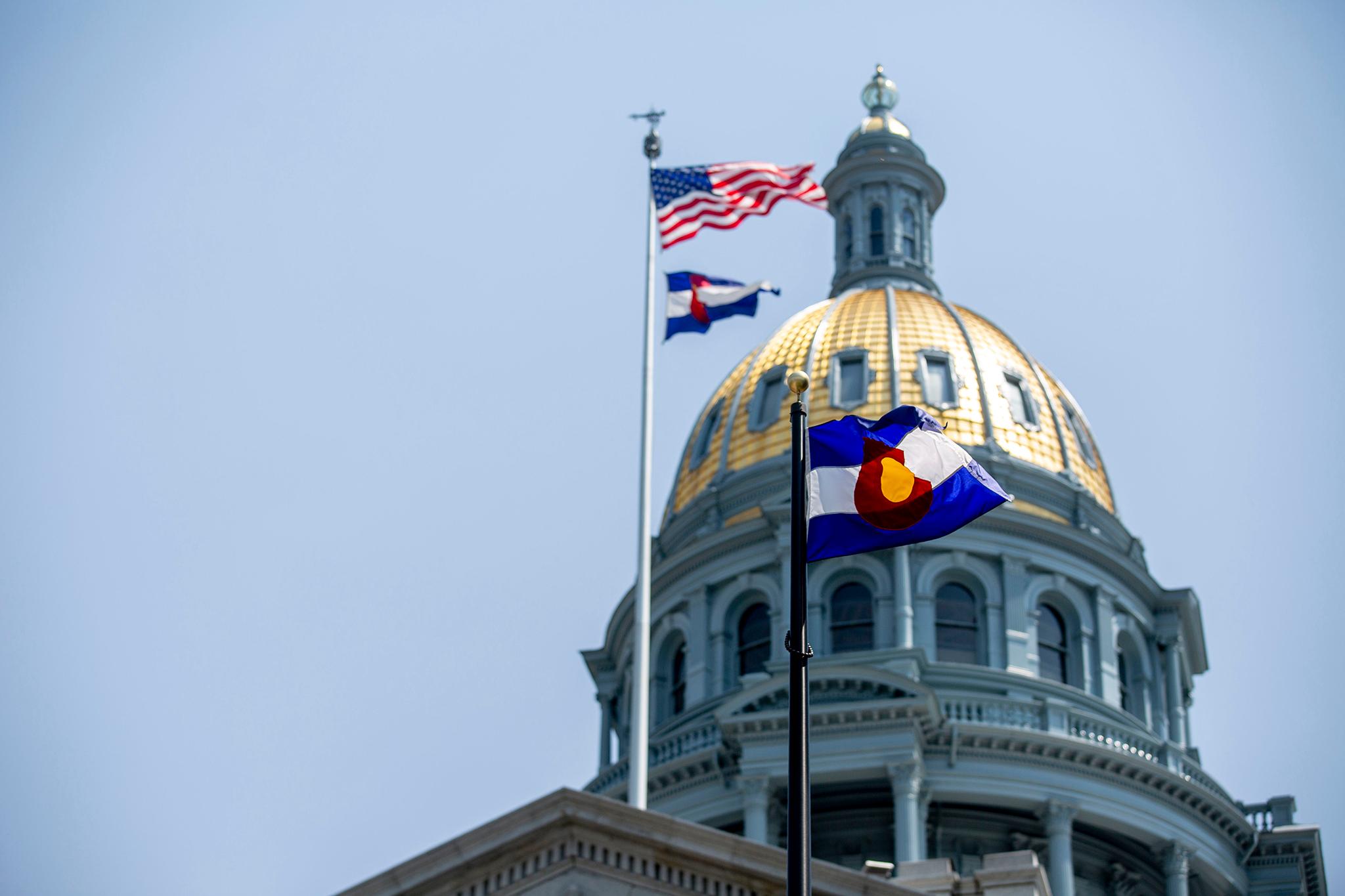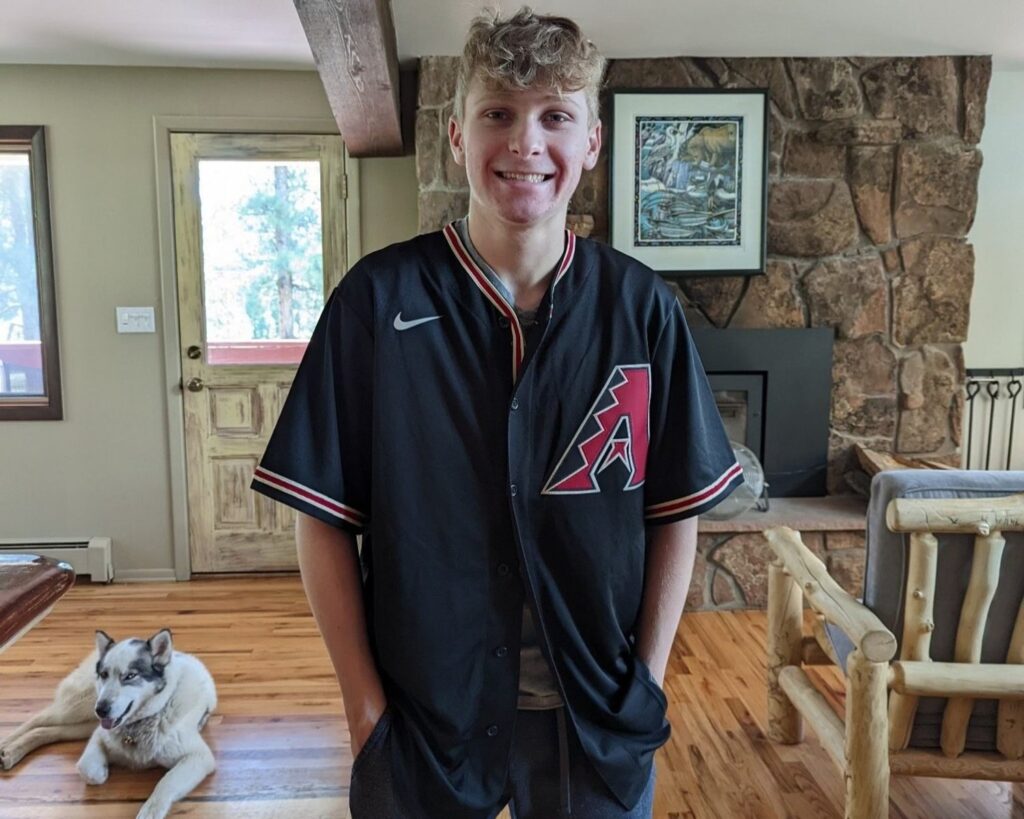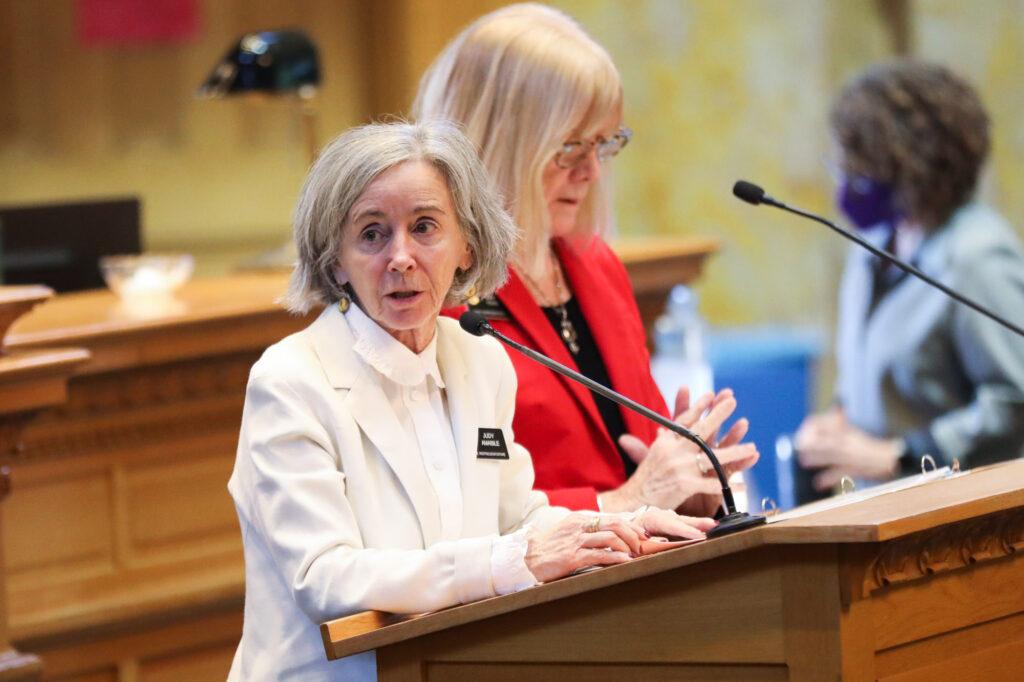
Editor's Note: This story contains details of self-harm. If you or someone you know is considering suicide or other acts of self-harm, please contact Colorado Crisis Services by calling 1-844-493-8255 or texting “TALK” to 38255 for free, confidential, and immediate support.
When Bruce Brown found an unfamiliar container with an odorless powder in his 17-year-old son Bennett’s room in 2022, he was concerned. Reading the words “sodium nitrite” on the label, he thought it might be an off-label nutritional supplement.
He texted his son to ask why he was taking it.
Bennett never wrote back.
“The next day, my question was answered,” Brown said solemnly on Thursday.
On that November day, while his father was away from home, Bennett Brown ingested the powder. As the poison took hold, he cried out for help, asking a family member to take him to the hospital. But it was too late.
Bennett died as the ambulance took him from his home in rural Clear Creek County. He was one of dozens of Coloradans to carry out suicide with the chemical in recent years.
“After grief-filled months, I wondered, what if we could prevent this grief-filled suffering for other families?” Brown told a panel of lawmakers at the Colorado State Capitol.
Now, a bipartisan group of Colorado lawmakers hope to save lives by cracking down on the sale of concentrated sodium nitrite. The state could become the third, following California and New York, to place new limits in recent years on the sale of the substance.
Sodium nitrite is an “easily accessible food additive” that is sold online, according to a recent study. It’s typically used to cure meats; as a disinfectant; and for other innocuous purposes. But that ease of access has made it attractive for people who are trying to assemble a “suicide kit” online, the study reported.
It doesn’t take much “to kill someone in 20 minutes,” said Carrie Goldberg, an attorney who has helped lead the charge nationally against sodium nitrite, in remarks at Thursday’s hearing.
When ingested, the drug can bring on methemoglobinemia, a condition “in which the blood is stripped of its ability to carry oxygen,” said Dr. Sean D. McCann, of the University of Illinois Hospital in Chicago, in a press release.
Sodium nitrite poisoning can be counteracted with a drug called methylene blue, according to McCann, but the substance acts so quickly that the antidote often can’t help or isn’t available in time.
Goldberg, the attorney, is representing 12 families in five lawsuits against Amazon, which used to sell highly concentrated sodium nitrite. The retail giant took nearly two years to remove the product from its website, despite users saying in product reviews that it had killed their family members, Goldberg said. And the substance is still commonly available elsewhere.
Bennett Brown was a lifelong Colorado Rockies fan with a charming sense of humor who was attending Arizona State University. He would have been 19 this January.

Before his death, Bennett had suffered from long COVID and a concussion, his father said. Brown knew that Bennett was struggling. But the speed of his son’s suicide was shocking — which Brown, a former district attorney, discovered as he tried to piece together what had happened.
As he sorted through his son’s records, he learned that Bennett had bought sodium nitrite with 97% purity for $13.99, with two-day shipping, from an out-of-state sporting goods store.
Bennett had even seemed to have second thoughts — he canceled the order, only for the store’s website to successfully prompt him to buy it anyway. Brown sent a private investigator to the store, where a manager acknowledged that he knew people were using their product for suicide, he said.
The proposed new Colorado law would limit the sale of any product with greater than 10 percent sodium nitrite by mass or volume. Only commercial businesses with a “verified” need could buy the higher concentrations. And the product would have to be labeled with a warning about its fatal effects and details about the antidote.
“Part of the hope is that by states taking action, the federal government then also takes action,” said Rep. Judy Amabile, a Democratic sponsor of the bill.

Also sponsoring the measure are Democratic Sen. Dylan Roberts and Republicans Rep. Marc Catlin and Sen. Byron Pelton.
Cracking down on the substance could prevent some suicides, Amabile and others said. Suicidal ideation often is temporary; denying a person access to an accessible option can help them hang on until the crisis passes. Indeed, research shows that when people survive a suicide attempt, the vast majority won’t try again, according to Harvard’s School of Public Health.
“If she had only had a pause, time to think, she would still be here today,” said David Ramirez, a Montrose man who lost his daughter Noelle to suicide by sodium nitrite.
Ramirez blames his daughter’s death, in part, on the man who sold her the drug. He said Noelle was a victim of Kenneth Law, a Canadian man who allegedly encouraged scores of people to buy and use sodium nitrite. Law faces more than a dozen murder charges in Canada, and he’s accused of supplying products to 88 people who died in the United Kingdom, among other countries.
“The person who coached and instructed her also sold her the product. This person went on to sell over 1,200 packages to 40 countries,” Ramirez told the committee.
After going public with his own family’s story, Ramirez said he was deluged with messages from other families who were bereaved by Law’s alleged provision of sodium nitrite. He heard the same thing from several: People who took the drug had an epiphany as they suffered.
“They wanted to live. They didn’t want to die. Unfortunately, at this point, it was way too late."
David Ramirez
Brown similarly believes that his son was tempted into death by a certain digital community that encourages suicide.
“These are grim reapers who, from across the world, will encourage somebody to take their life because they think that's what they need. That's a very arrogant and sickening mental place to be,” he said. “My son was 17. For somebody to have encouraged him to take his life makes me very angry.”
About a half-dozen bereaved family members spoke at Thursday’s hearing.
State health officials first linked sodium nitrite to a death in 2018 and have since counted 31 such fatalities. All but two were classified as suicides, and the numbers have peaked in recent years.
“My family and I do not want to be here. It has felt like we are living new lives as if our home burned down. But it is our duty and burden to not stand idly by,” said Quinn Frankovsky, 24, whose brother Sam died of sodium nitrite poisoning. “It is our civic and moral duty to extinguish this gross product from our community."
New York recently banned the sale of the substance to anyone under 21. California banned its sale to anyone under 18, and the sale of the concentrated substance in all cases. A bipartisan federal ban is under consideration in Congress and has been pending in committee since July.
The Colorado bill hasn’t drawn any opposition so far. The measure received unanimous approval at a House committee hearing but still must clear several other steps before it can be signed by Gov. Jared Polis.
Even if it passes, Amabile said it would still leave the larger question of what to do about sites that encourage or support suicide.
“This is a little whack-a-mole. There will be [another lethal substance] that goes for sale,” she said. Amabile and Sen. Roberts previously announced that they wanted to ban people from providing advice and encouragement for non-medical suicides.
Editor’s note: If you or someone you know is struggling or in crisis, please contact Colorado Crisis Services by calling 1-844-493-8255 or texting “TALK” to 38255 for free, confidential, and immediate support.
Correction: An earlier version of this story had an incorrect number to text Colorado Crisis Services. The correct text number is 38255.









